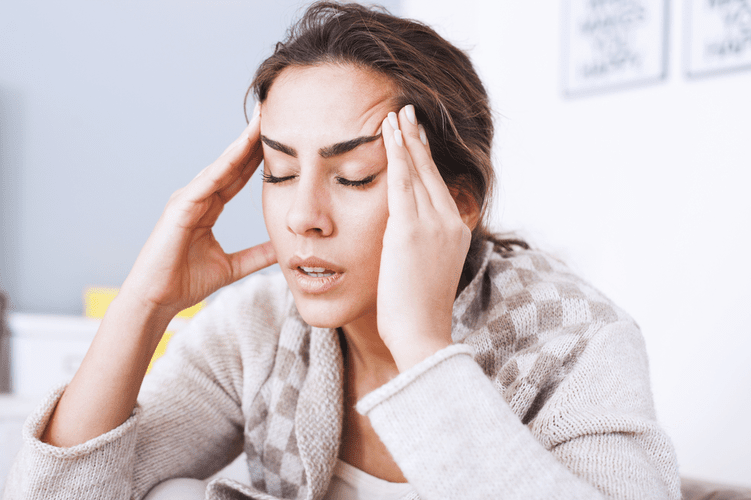How to Avoid Getting Bruises From Alcohol
Some people (it’s usually women) just have more fragile blood vessels, and that makes them more likely to bruise, especially on their upper arms, thighs, or butt. It may seem scary, but if you feel fine and don’t have any other symptoms, it’s probably nothing to worry about. Corticosteroids or pentoxifylline may help reduce inflammation in people with acute alcoholic hepatitis while receiving hospital treatment. The first step in treating any level of alcoholic liver disease focuses on removing alcohol from the diet.
- As liver functioning declines from chronic alcohol misuse, a person is likely to bleed and bruise easily.
- According to the National Library of Medicine, a bruise is a mark under the skin, usually painful and swollen, that occurs because of blood trapped beneath the skin’s surface.
- They may also develop large bruises after minor injuries or have bruises that take many weeks to heal.
- Alcohol-related abnormalities in RBC production manifest themselves not only in the bone marrow but also through the presence of defective RBC’s in the blood.
As vasodilators, alcohol and acetaldehyde dilate our blood vessels, causing our faces to flush and turn red. “Within several days [of quitting alcohol], patients may notice a difference in their skin hydration and that their skin appears smoother, brighter and stronger,” Casey said. But the good news is that when you forgo the booze (and prioritize drinking https://accountingcoaching.online/facing-your-powerlessness-in-addiction-recovery/ water), the dehydrating effects of alcohol are fairly easy to fix. This alcohol-induced dehydration is why we can look a bit “rougher” than usual the morning after a night of drinking. 5Failure of the platelet counts to rise after 5 to 7 days of abstinence usually indicates the presence of another underlying disorder affecting the platelets.
Liver Damage And Bruising
Consequently, alcoholics frequently suffer from bacterial infections. Finally, alcohol adversely affects the platelets and other Easy bruising: Why does it happen? components of the blood-clotting system. Heavy alcohol consumption thus may increase the drinker’s risk of suffering a stroke.
Our experts continually monitor the health and wellness space, and we update our articles when new information becomes available. The exact mechanism that causes people to misuse alcohol is unclear. Our reporters rely on research, expert advice and lived experiences. “Keep in mind that consuming the same volume of a drink with a lower alcohol content like beer or wine will have less alcohol than the same amount of liquor,” Cices said.
Bruised feeling all over body after drinking alcohol
It’s important to recognize warning signs and seek help if you’re concerned about having a relapse. For some people, alcohol misuse results from psychological or social factors. Others use alcohol to cope with psychological issues or stress in their daily lives. If you have a history of withdrawal symptoms, see a health professional before quitting.

Numerous clinical observations support the notion that alcohol adversely affects the production and function of virtually all types of blood cells. Thus, alcohol is directly toxic to the bone marrow, which contains the precursors of all blood cells, as well as to the mature cells circulating in the bloodstream. Moreover, long-term excessive alcohol consumption can interfere with various physiological, biochemical, and metabolic processes involving the blood cells. These direct effects may be exacerbated by the presence of other alcohol-related disorders, such as liver disease and nutritional deficiencies. Abstinence can reverse many of alcohol’s effects on hematopoiesis and blood cell functioning.
National Institute on Alcohol Abuse and Alcoholism (NIAAA)
To avoid bruises, crack down on clutter at home and always wear protective gear when you exercise or play sports. If you’re having nosebleeds for no reason, if your gums bleed a lot after you brush or floss, or if small cuts or scrapes seem to bleed heavily, call your doctor. You bang your toe on the closet door, and before too long, it turns a garish black and blue. But sometimes you spot a bruise and you can’t figure out how you got it.
- Our News, Politics and Culture teams invest time and care working on hard-hitting investigations and researched analyses, along with quick but robust daily takes.
- Individual drinkers appear to differ in their susceptibility to alcohol-induced thrombocytopenia.
- For more information about alcohol’s effects on the body, please visit the Interactive Body feature on NIAAA’s College Drinking Prevention website.
- Fibrin clots, in turn, can be dissolved by a process that helps prevent the development of thrombosis (i.e., fibrinolysis).
Consuming alcohol on an empty stomach is said to have negative consequences such as increased bruise risk and other side effects. It may induce quicker absorption into the circulation, resulting in higher alcohol levels in the body. It may cause dehydration and interfere with your body’s natural capacity to coagulate blood, resulting in skin damage and bruising. Continuing to drink, even when it causes health problems, is a sign of an alcohol use disorder. Someone who lives with an alcohol use disorder may experience lasting brain changes that make it difficult to stop drinking. If you’re aware that drinking is causing health problems, such as liver issues and bruising from alcohol, but you’re unable to stop drinking on your own, it’s time to seek treatment.
Alcohol Detox: Guidelines for Successfully Detoxifying from Alcohol
If your bruises mostly appear in the places that you’d expect to bump – think shins and elbows – it’s less of a concern than bruises on the torso or other soft tissue areas, which might show underlying problems. Similarly, if a bruise is unusually dark, or seems to be growing rather than fading, it could be the sign of an underlying problem. In some people, the initial reaction may feel like an increase in energy. But as you continue to drink, you become drowsy and have less control over your actions.
Your provider might also check your blood platelet levels or do tests that measure the time it takes your blood to clot. If you experience increased bruising, don’t stop taking your medications. Also, tell your provider about any supplements you’re taking — especially if you’re taking them while on a blood-thinning drug. Your provider might tell you to avoid certain nonprescription medications or supplements. If your pattern of drinking results in repeated significant distress and problems functioning in your daily life, you likely have alcohol use disorder.
Alcohol’s Effects on the Blood-Clotting System
These proteins include those involved in blood clotting as well as immune proteins (i.e., antibodies or immunoglobulins). As you age, your skin gets thinner and loses the protective layer of fat that acts as a cushion when you bump into something. On average, 1 in 3 people with the most advanced stage of liver disease and cirrhosis are still alive after 2 years. When the body can compensate and manage cirrhosis, the typical lifespan is 6–12 years. Those with less severe diseases will survive longer if they abstain from alcohol.


